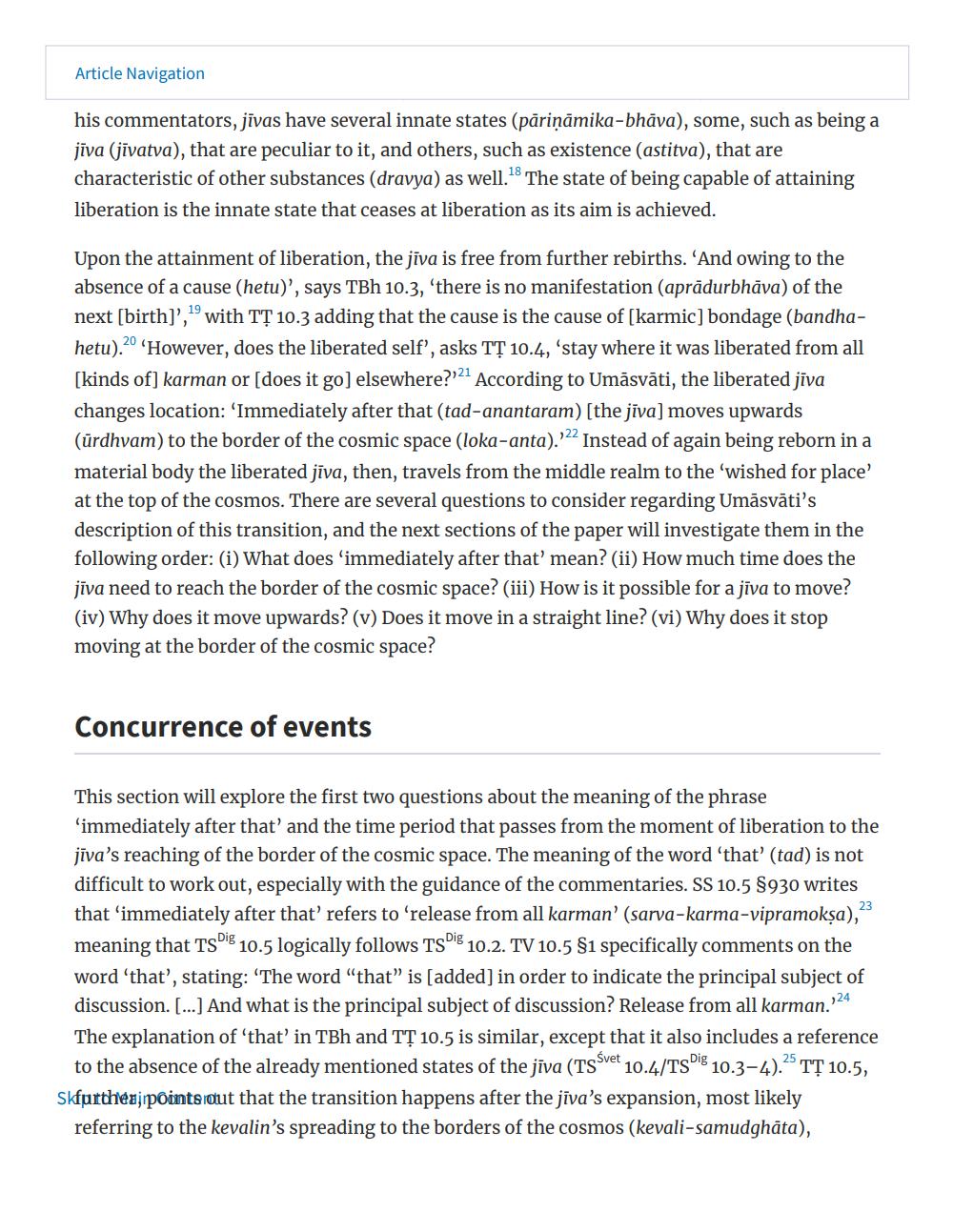Book Title: Jaina Philosophers On Nature Of Liberation Author(s): Publisher: Unknown View full book textPage 4
________________ Article Navigation his commentators, jīvas have several innate states (pāriņāmika-bhāva), some, such as being a jiva (jīvatva), that are peculiar to it, and others, such as existence (astitva), that are characteristic of other substances (dravya) as well. The state of being capable of attaining liberation is the innate state that ceases at liberation as its aim is achieved. Upon the attainment of liberation, the jīva is free from further rebirths. And owing to the absence of a cause (hetu)', says TBh 10.3, 'there is no manifestation (aprādurbhāva) of the next [birth]',19 with TT 10.3 adding that the cause is the cause of [karmic) bondage (bandhahetu).20 'However, does the liberated self', asks TT 10.4, 'stay where it was liberated from all [kinds of] karman or [does it go) elsewhere?:21 According to Umāsvāti, the liberated jīva changes location: 'Immediately after that (tad-anantaram) (the jiva] moves upwards (ürdhvam) to the border of the cosmic space (loka-anta). 22 Instead of again being reborn in a material body the liberated jīva, then, travels from the middle realm to the 'wished for place? at the top of the cosmos. There are several questions to consider regarding Umāsvāti's description of this transition, and the next sections of the paper will investigate them in the following order: (i) What does 'immediately after that' mean? (ii) How much time does the jīva need to reach the border of the cosmic space? (iii) How is it possible for a jiva to move? (iv) Why does it move upwards? (v) Does it move in a straight line? (vi) Why does it stop moving at the border of the cosmic space? Concurrence of events This section will explore the first two questions about the meaning of the phrase 'immediately after that' and the time period that passes from the moment of liberation to the jīva's reaching of the border of the cosmic space. The meaning of the word 'that' (tad) is not difficult to work out, especially with the guidance of the commentaries. SS 10.5 8930 writes that 'immediately after that' refers to 'release from all karman' (sarva-karma-vipramokşa),23 meaning that TS 10.5 logically follows TS 10.2. TV 10.5 S1 specifically comments on the word 'that', stating: 'The word "that" is (added) in order to indicate the principal subject of discussion. [...] And what is the principal subject of discussion? Release from all karman.24 The explanation of 'that' in TBh and TT 10.5 is similar, except that it also includes a reference to the absence of the already mentioned states of the jiva (TS Svet 10.4/TS 10.3-4). TȚ 10.5, Skfurtheajpoints out that the transition happens after the jiva's expansion, most likely referring to the kevalin's spreading to the borders of the cosmos (kevali-samudghāta),Page Navigation
1 2 3 4 5 6 7 8 9 10 11 12 13 14 15 16 17 18 19 20 21 22 23 24 25 26 27 28 29
